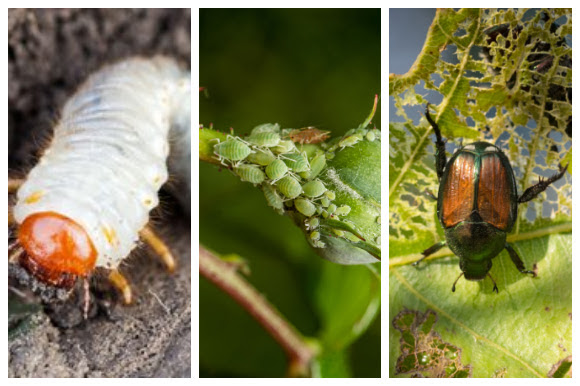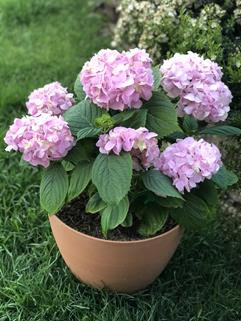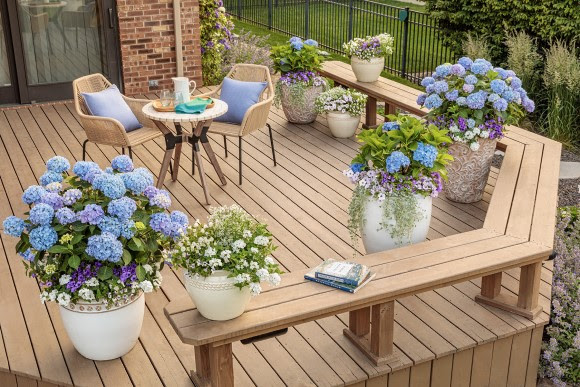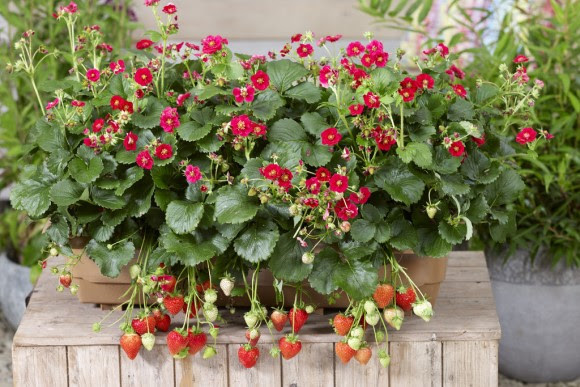You know summer is coming when you see hydrangeas starting to appear in garden centers, strawberries beginning to ripen, the weather warming up enough to enjoy being outside at night, and (unfortunately) garden pests returning. If any—or all—of that sounds like summer in the garden to you, then you’re in luck this week. Enjoy!
It seems there are so many questions regarding hydrangeas—do they all change color? Is shade a must? Do they need to be pruned? If so, when and how? Well, we’re here to answer all of your hydrangea questions—just check out these articles:
How to Grow & Care for Hydrangeas
6 Types of Hydrangeas
How to Prune Hydrangeas
How to Change Hydrangea Color
Pictured: 2021 Hydrangea of the Year, Tuff Stuff Ah-Ha® reblooming mountain hydrangeas, each with different soil chemistry to change the flower color. Photo by: Proven Winners.
Want to grow hydrangeas on a patio, porch, or deck? Put ’em in a pot! Find outwhat the key factors for success are, get tips on container choice, and see which ones are perfectly suited for growing in a container.
This summer, create a garden that you can also enjoy at night. White flowers (hint: Limelight hydrangea would be great!) and silver or variegated foliage reflect the moonlight. Add night-blooming fragrant flowers to create a multi-sensory experience. Discover more design tips and plant suggestions to help you design your own moonlight garden. Pictured: The White Garden at Sissinghurst Castle.
Not many things say summer like fresh-picked strawberries, especially when they’re right out of your own garden. Plus, you can do so many things with them: eat them fresh or make jams, jellies, pies, and even this lemon-infused Strawberry Upside-Down Cake from our friend Kevin Lee Jacobs. Learn more about the different types and how to grow your own delicious strawberries at home. Find unique varieties at your local garden center, like Berried Treasure Red from Proven Winners (pictured) with its bright red flowers.

It’s no doubt that gardening brings us joy (otherwise we wouldn’t be here), but it can also bring equal amounts of frustration—especially when it comes to dealing with pests. Learn practical solutions to naturally deal with a few of the worst offenders:

Happy gardening!
-Linda




